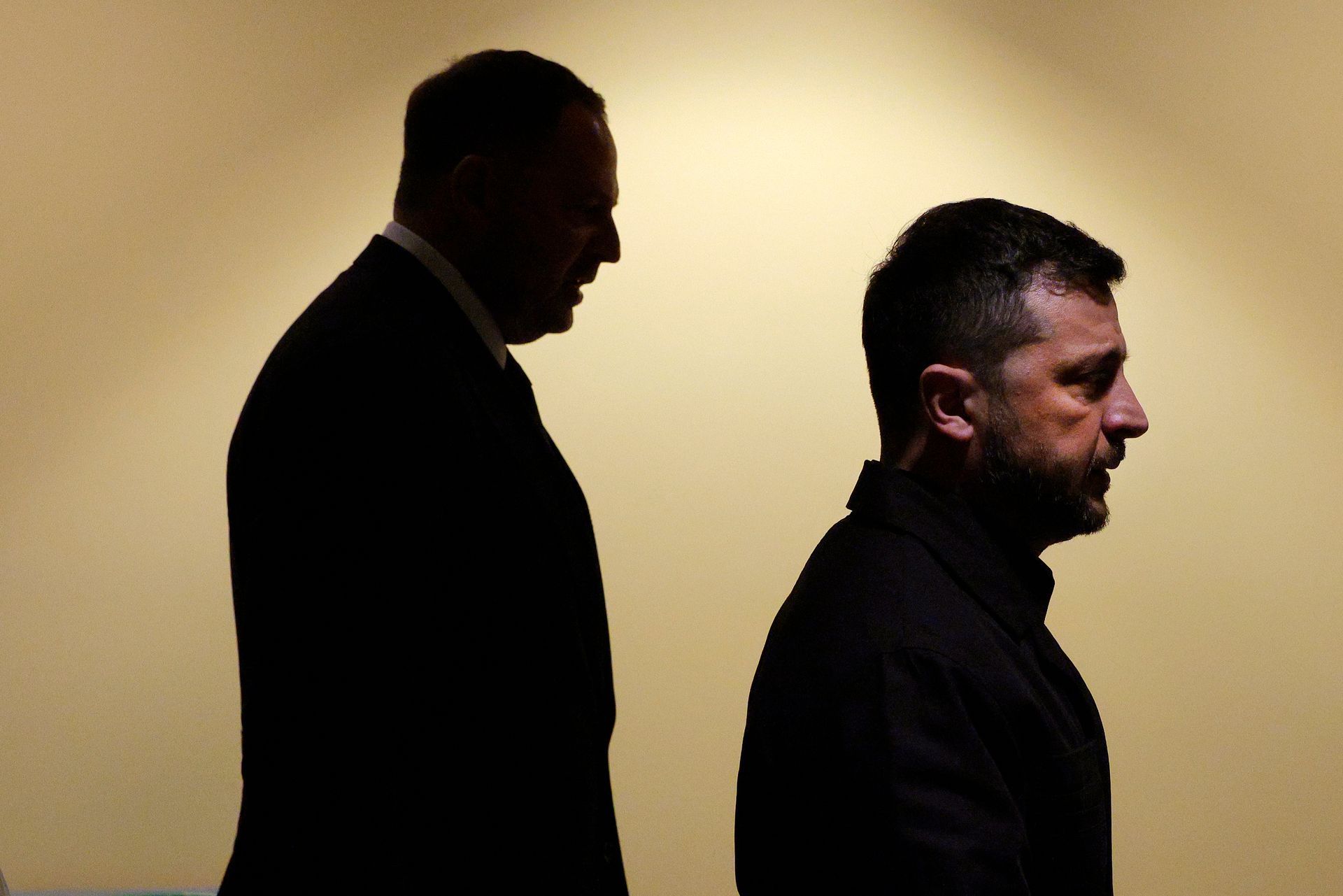When you want it bad, you get it bad: Steve Witkoff and the US push to end the war

U.S. special envoy Steve Witkoff speaks during a Bloomberg Television interview outside the White House in Washington, D.C., U.S. on March 19, 2025. (Stefani Reynolds/Bloomberg via Getty Images)

Daniel Fried
Weiser Family distinguished fellow at the Atlantic Council
"When you want it bad, you get it bad." That’s how one of my colleagues on the Clinton National Security Council staff described the problem when a U.S. administration chases after an objective so hard that it either forgets what it set out to achieve or simply goes for a "win," no matter the cost or consequence.
That’s the weakness of much of the Trump administration’s approach to seeking a deal to end Russia’s war against Ukraine: it sometimes seems to want any deal, not a sustainable deal.
That eagerness has left the administration, in particular Special Envoy Steve Witkoff, vulnerable to being played.
The leak of two phone calls, one between Steve Witkoff and Putin’s foreign affairs advisor Yuriy Ushakov and the other between Ushakov and Kiril Dmitriev, the Kremlin-connected Russian who has been Witkoff’s counterpart, illustrates the dilemma.
In seeking to accelerate diplomacy, the U.S., through Witkoff, gave the Russians the opportunity to shape what purported to be a U.S. compromise plan — the famous and happily discarded 28 points.
That draft was a mess of Russian maximalist positions, contradictions, and ambiguity that crowded out its more workable notions.
Happily, the 28-Point plan was quickly superseded.
In a masterful initiative, Secretary of State Marco Rubio pulled together a strong group of Europeans and Ukrainians in Geneva to hammer out a 19-point plan that is now the basis of intense discussions with Ukrainians and Russians, including in Abu Dhabi.

That draft has not been made public but is, by all accounts, including those of the Ukrainian negotiators, far better than the 28-point plan.
On Nov. 25, President Donald Trump lauded what he termed "tremendous progress" in reaching a deal to end the war and announced that Witkoff would go to Moscow to meet with Russian President Vladimir Putin, seeking to resolve the "few remaining points of disagreement."
Witkoff is under sharp attack in Washington for his role in channeling Russian ideas into what purported to be a U.S. plan.
His credibility with Ukrainians and European governments, some of which will be crucial in sustaining a peace deal, has been damaged.
Another interlocutor with the Kremlin might be better suited to advance a sustainable deal to end the war. For now, however, Witkoff seems to still have the confidence of President Trump, who defended him after the phone call transcripts became public.
Given this, the Ukrainian leadership should continue its wise course of engaging constructively with the Trump administration on this fast-track, sometimes careening, effort to end the conflict.
The Ukrainians will be dealing, in any case, with another special envoy, Army Secretary Dan Driscoll, who was in Kyiv to present the 28 Points, in Geneva, where they were superseded, and whom Trump has now named as the lead for talks with the Ukrainians.
Driscoll also seems to be credible to the upper reaches of the administration, a critical qualification.
A good deal must be one that can last in the face of Putin’s ill-will and malign intent to dominate all of Ukraine.
The process on the U.S. side can be infuriating. But the Trump administration is not the first U.S. administration to use special envoys or strange "back channels" to bypass its own foreign policy apparatus. Nor is pursuing policy objectives outside normal channels always a bad thing.
Going around the system is sometimes needed to get results. I did a bit of that in my own career. The Trump administration appears to be badly divided about Ukraine policy. Different groups with different objectives are maneuvering for influence, seeming to jam each other as they seek traction for their preferred policy approaches. That, too, is not new in U.S. foreign policy.
The Reagan administration was bitterly divided over its Soviet policy, with competing leaks to the press, back channels to the Kremlin, end runs around opponents, and other forms of bureaucratic knife fighting. The result was the best Soviet policy the U.S. ever had.
The furor over Witkoff’s role and the leaked phone call transcripts will pass, as such furors usually do.
The larger question is whether the Trump administration — or more accurately Trump himself — will come to understand that the win he seeks cannot be any deal at any price.
A good deal must be one that can last in the face of Putin’s ill-will and malign intent to dominate all of Ukraine.
A sustainable deal to end the war must have two key elements: a ceasefire, hopefully along the existing front line, as President Trump has himself suggested; and security for Ukraine.

Putin will resist both.
The question for the Trump administration will be whether it is prepared to force Putin to step back from his maximalism. The U.S. has leverage, including options to increase economic pressure on Russia and options to work with Europe on credible security arrangements for Ukraine, not the empty commitments of the 1994 Budapest Memorandum but a real plan — backed by military assets such as air power and air defense — to help Ukraine defend itself in the event of yet another Russian attack.
If you want it bad, you get it bad, as my NSC colleague and friend put it. The Trump administration needs to want a good deal.
If President Trump, at long last, wants to get a peace deal right and is prepared to push back on Putin to achieve it, the special envoy, even Steve Witkoff, can pass that stark message to the Kremlin and help land the win.
Editor's Note: The opinions expressed in the op-ed section are those of the authors and do not purport to reflect the views of the Kyiv Independent.










